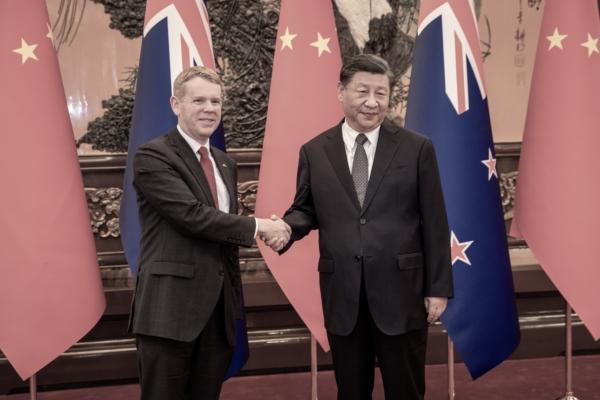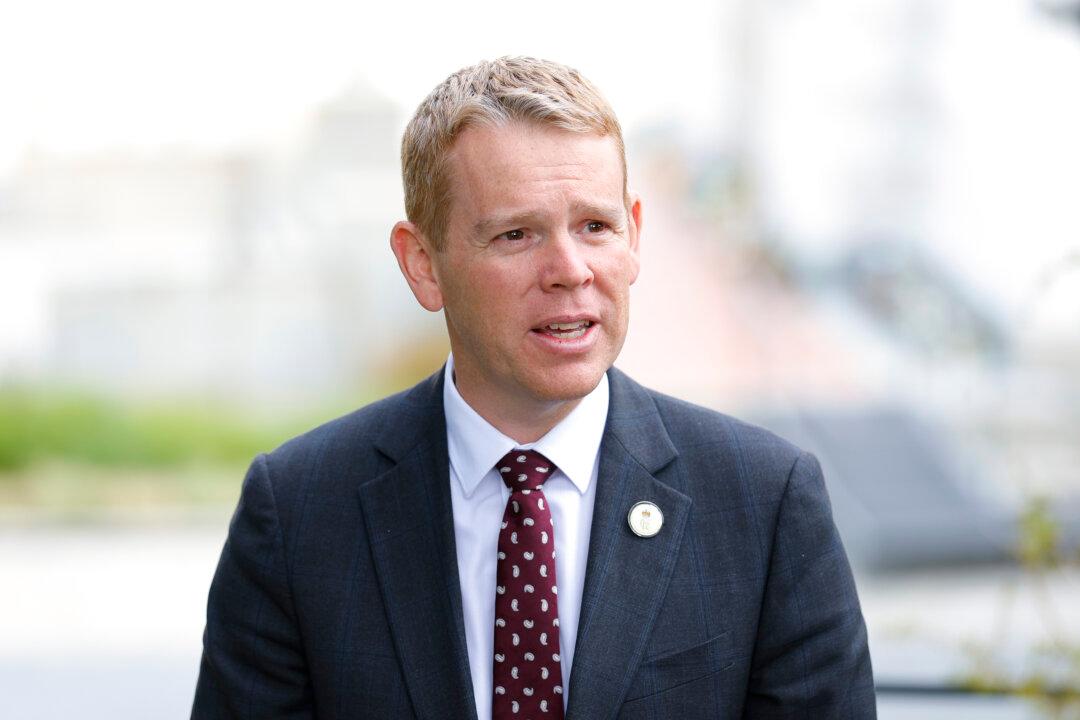New Zealand’s leader said Friday that his country will need to engage in “tough conversations” with China on areas where their views and national interests clash in order to maintain their bilateral relationship.
During his speech at the New Zealand Institute of International Affairs, Prime Minister Chris Hipkins said relations with communist China are “the most complex” and will require “continued engagement.”
“It’s obvious New Zealand and China hold a number of different views. We don’t share a democratic tradition as we do with other partners like Australia, the United Kingdom, and the United States,” Hipkins said.
“Our differing positions on human rights is an area of disagreement. And in global affairs, we have voiced concerns about China’s more assertive posture on a range of issues,” he added.
New Zealand’s economy relies heavily on its biggest trading partner, China, and the government has usually strayed from taking a strong stance against the Chinese Communist Party (CCP) regime.
Hipkins said that while New Zealand has an “independent” foreign policy, it does not imply “neutrality.” In this regard, he said the government prefers to have “open and honest engagement” with China.
“As a country, we may be small, but we are not bystanders. We chart our own course with decisions that are in our national interest,” the prime minister remarked.
“A strong, mature, and complex relationship means we will have those tough conversations, just as I also raised areas of disagreement with the Chinese leadership when I was in Beijing last week,” Hipkins said.
“But I think it’s better to be talking than not. Dialogue delivers greater security,” he added. “Putting up walls and closing doors doesn’t serve us well in the long term, and engagement is always preferable to isolation.”

New Zealand Careful With China
Before flying to Beijing, Hipkins told media that he didn’t agree with U.S. President Joe Biden calling Xi a “dictator.”It comes as New Zealand tries to walk a tightrope between its traditional Western allies and China.
China expert and critic Professor Anne-Marie Brady said she believed that the reason New Zealand leaders were more careful when criticizing the CCP than other Western nations was because of its weak military power.
New Zealand’s refusal to approach the CCP with tougher foreign policy previously attracted critics to call the country the “soft underbelly” of the Five Eyes alliance. The two sides upgraded their free trade pact last year.
In recent years, however, New Zealand’s tone on issues ranging from human rights, the international rules-based order, and potential militarization of the Pacific has toughened, with its Western allies becoming increasingly hawkish toward China.





